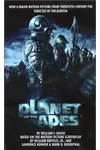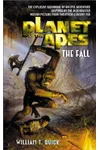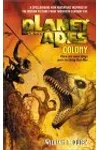Picture a storyteller who not only crafted gripping cyberpunk adventures but also named the very digital realm we call the blogosphere—meet William T. Quick! Born in 1946, this American author has spun tales across science fiction, thrillers, and even prehistoric adventures, all while leaving a mark on the internet’s early days with his sharp-witted libertarian blog.
From his seminal novel Dreams of Flesh and Sand to coining 'blogosphere' in 2002, Quick’s career is a blend of prescient imagination and cultural influence. Let’s dive into the life and legacy of this multifaceted writer who’s been thrilling readers and shaping online discourse for decades.
The Making of William T. Quick
Born in Indiana in May 1946, William Thomas 'Bill' Quick grew up with a knack for storytelling. By age 13, he was hammering out poetry on a rusty Underwood typewriter, a far cry from the voice-activated tech he’d later embrace. After moving to San Francisco’s Hunters Point, Quick’s love for science fiction blossomed, inspired by the genre’s ability to explore bold ideas. His early career kicked off with short stories in magazines like Analog and Asimov’s, setting the stage for a prolific run of 28 novels.
William T. Quick’s Unforgettable Stories
Quick’s bibliography is a treasure trove of genre-blending brilliance. His 1988 cyberpunk classic, Dreams of Flesh and Sand, part of the Dream Trio, wowed readers with its AI-driven corporate dystopias and nanotechnology riffs, earning praise from Fantasy & Science Fiction Magazine as a top sci-fi pick. The novel’s vision of a character ordering groceries online—written before the internet’s rise—showcased Quick’s uncanny foresight.
Under the pseudonym Margaret Allan, Quick penned The Last Mammoth, a bestselling prehistoric thriller that brought ancient worlds to life with vivid detail. His 2014 disaster novel, Lightning Fall, climbed Amazon’s Top 200 and hit number three in hard sci-fi sales, lauded in a USA Today column for its chilling plausibility. Quick also co-authored the six-novel Quest for Tomorrow series with William Shatner, blending cosmic adventure with sharp dialogue.
Known for taut prose and bold themes, Quick’s style merges thrilling plots with libertarian undertones, often skewering power structures. Whether crafting cyberpunk epics or prehistoric sagas, his work pulses with a rebellious spirit and a knack for predicting tech trends.
Why William T. Quick Matters
Quick’s impact stretches beyond bookshelves. On New Year’s Day 2002, he coined 'blogosphere' on his libertarian-conservative blog, Daily Pundit, giving a name to the burgeoning world of online voices. The term caught fire, adopted by outlets like CNN and NPR, cementing Quick’s role in shaping digital culture. His blog, launched in 2001, remains a hub for acerbic political commentary and insights into his writing process.
In literature, Quick’s cyberpunk innovations and genre versatility have inspired readers and writers alike. His ability to weave speculative tech with human struggles makes his work timeless, while his online presence keeps him connected to fans. Quick’s legacy is one of bold ideas, from matrix-like virtual realities to naming the internet’s intellectual cyberspace.
- Born: May 1946, Indiana
- Key Works: Dreams of Flesh and Sand, The Last Mammoth, Lightning Fall
- Notable Contribution: Coined 'blogosphere' in 2002
Snag Dreams of Flesh and Sand and dive into William T. Quick’s thrilling cyberpunk world—your imagination will thank you!





